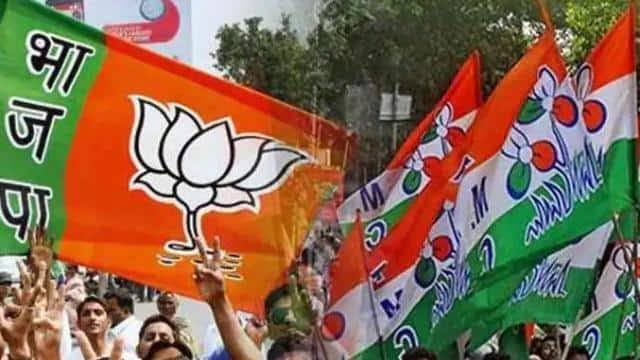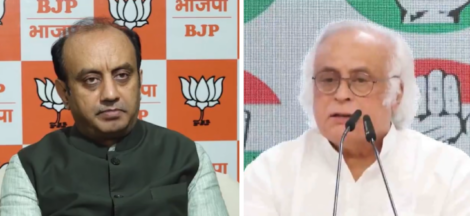The Trinamool Congress has intensified its criticism of the Election Commission , alleging collusion with the Bharatiya Janata Party in manipulating electoral rolls ahead of the upcoming assembly elections in West Bengal. Chief Minister Mamata Banerjee has accused the BJP of tampering with voter lists, purportedly with the EC’s assistance, to sway the electoral outcome in their favour.
Addressing party leaders and functionaries at Kolkata’s Netaji Indoor Stadium, Banerjee claimed that the BJP, with the EC’s backing, is altering voter lists to secure victory in the 2026 assembly polls. She urged TMC members to actively prevent the inclusion of fake voters, stating, “It is your responsibility to stop fake voters from being included.”
In response to these allegations, the TMC has initiated a door-to-door campaign to verify the accuracy of the electoral rolls. Kolkata Mayor Firhad Hakim led the verification drive in the Chetla area of south Kolkata, emphasizing the party’s commitment to ensuring a fair electoral process.
The EC has dismissed Banerjee’s allegations, with West Bengal’s Chief Electoral Officer stating that the claims of electoral manipulation are unfounded. The CEO assured that the electoral process remains transparent and that necessary measures are in place to maintain the integrity of the voter lists.
Despite the EC’s clarification, the TMC remains skeptical. Party spokesperson Kunal Ghosh accused certain EC officials of conspiring with the BJP to include names of outsiders in Bengal’s voters’ list without proper physical verification, particularly in border areas. Ghosh emphasized the party’s resolve to scrutinize the electoral rolls meticulously to prevent any malpractice.
This controversy has sparked a broader debate on the impartiality of the EC in India. In the 2021 West Bengal Legislative Assembly elections, election strategist Prashant Kishor, who assisted the TMC, accused the EC of partiality, alleging that it favored the BJP by allowing the use of religion in campaigns and by scheduling the polls in a manner advantageous to the ruling party.
Similar allegations have surfaced in other states. In Karnataka, the Indian National Congress accused an NGO of collecting voter data to benefit the BJP, leading to the deletion of legitimate voters and the inclusion of fake ones. The NGO was subsequently blacklisted, and investigations were launched into the matter.
Nationally, opposition leaders have raised concerns about the electoral process. Congress leader Rahul Gandhi alleged that the 2024 general elections were manipulated to favor Prime Minister Narendra Modi, citing financial advantages and influence over the EC. Gandhi’s party also complained to the EC over the outcome of state polls in Haryana, describing the results as unexpected and counter-intuitive. citeturn0news31turn0news33
The BJP has consistently denied these allegations, asserting that the opposition’s claims are attempts to discredit the party’s legitimate electoral successes. BJP leaders argue that the party’s victories are a result of effective governance and public support, rather than electoral manipulation.
The EC has also refuted claims of bias, maintaining that it operates as an independent body committed to conducting free and fair elections. In response to the allegations in West Bengal, the EC reiterated its dedication to transparency and stated that any discrepancies in the voter lists would be addressed promptly.
As the 2026 West Bengal assembly elections approach, the TMC’s allegations have heightened tensions between the party, the BJP, and the EC. The situation underscores the critical importance of electoral integrity in maintaining public trust in democratic institutions. Both the ruling and opposition parties, along with the EC, face the challenge of ensuring that the electoral process remains fair, transparent, and free from manipulation.
The TMC’s proactive measures, such as the door-to-door verification campaign, reflect the party’s determination to safeguard the electoral process. However, the effectiveness of these efforts will depend on the cooperation of the EC and other stakeholders in addressing any legitimate concerns raised.
The allegations of voter list manipulation are not isolated to West Bengal. In Delhi, the Aam Aadmi Party and the BJP have clashed over similar issues, with AAP leader Atishi writing to the Chief Election Commissioner to review voter deletions in the New Delhi constituency.




 Congress Leader’s Remarks on Rohit Sharma’s Fitness Ignite Political Storm
Congress Leader’s Remarks on Rohit Sharma’s Fitness Ignite Political Storm 